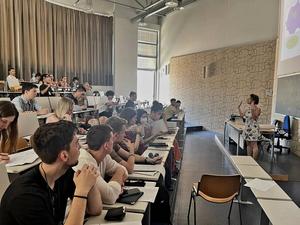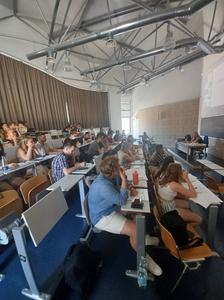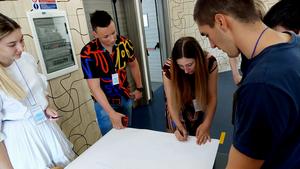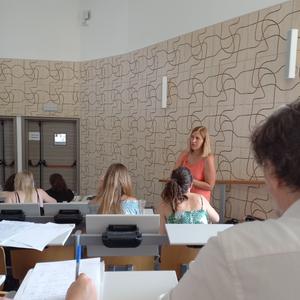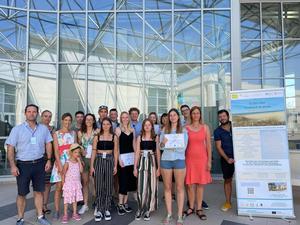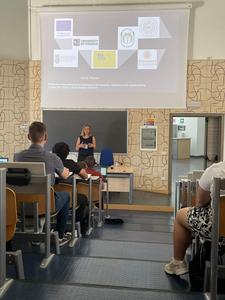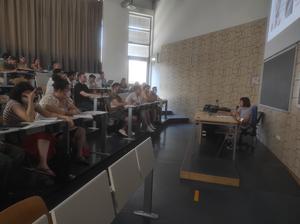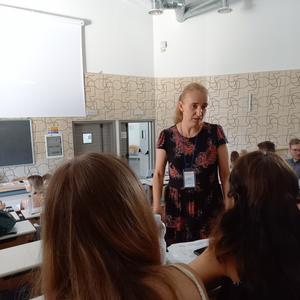Between July 17 and 22, 2022, ten students and several lecturers of the University of Public Service participated in the EUSecure summer university in Lecce, southern Italy, which was supported by the European Union as part of the EUSecure Project implemented within the framework of the Erasmus+ Strategic Partnership in Higher Education programme.
The aim of the EU-funded project is to develop a transdisciplinary elective subject (EU Security Resilience and Sustainability), a simulation exercise, a MOOC (open access online education platform) and a high school version og EUlite.
The course consists of 15 modules (one module = one weekly topic = one policy area). The teaching methods combine traditional and online learning and are supplemented with simulation exercises.
Dr Anna Molnár, head of the Department of International Security Studies at UPS, professional leader of EUSecure, explained the project and emphasized that the aim of the interdisciplinary approach is to give the students as broad a picture as possible of the challenges of the world around them. At the summer university, Dr Anna Molnár, Dr Boglárka Koller, Vice-Rector for International affairs, Dr Bence Horváth, FLE International Deputy Dean, Dr Mónika Szente-Varga, Dr Éva Jakusné, Dr Éva Harnos and Dr András Varga, lecturers from FPIGS and FMSOT and Edina Zsigmond, project manager represented UPS..
Four other universities participated in the project led by UPS: University of Piraeus, Greece (UNIPI), University of Fernando Pessoa, Portugal (UFP), University of Salento, Italy (UNISAL) and Sapientia Transylvanian Hungarian University, Romania (SAPIENTIA)). Each had their own students representing their appropriate school organized in teams and instructors at the summer university course. In this way, the participants were able to develop their knowledge and skills in a colourful, international environment regarding the main challenges of the future affecting Europe.
The summer university consisted of a handful of modules related to security issues, such as megatrends in the 21st century; strategic autonomy of the EU; maritime security; migration; cyber security; protection of critical infrastructure; water security and water geopolitics; social media and fake news, as well as public health and epidemic prevention. These modules were developed and presented by an international team of professors.
The watchwords of the project are Security, Resilience and Sustainability of the European Union, so in addition to explaining the functioning of the European Union, the participants could listen to classes covering the topics of cyber and climate security, megatrends, fake news, international governance and humanitarian activities, a through the lectures of an extremely well-prepared teaching staff of mixed nationalities. In addition to classes using the frontal teaching method, it was also possible to acquire knowledge through discussions, practical tasks, role-plays and simulation exercises. During the course, which uses creative teaching methods, special emphasis was placed on the participants forming mixed pairs and groups with students from other universities to solve various tasks, thereby further broadening their perspective in relation to the various topics involved.
The participants of the program returned home with decisive experiences, new friendships and a wider range of knowledge thanks to the maximum use of the opportunities provided by the summer university course.
Text: Dr Anna Molnár PhD
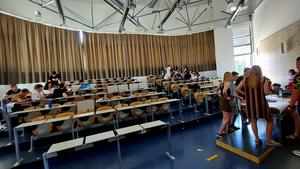
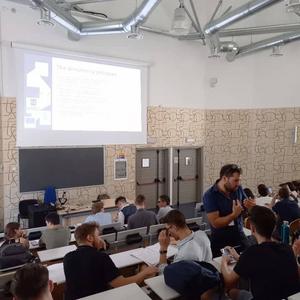
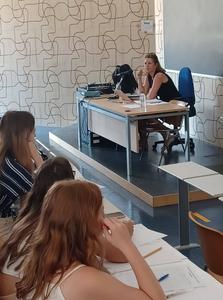
.jpg)
